第37章
Jean backed into a lane and turned the car round.After that Henri got in and they went rapidly back toward the Front.It was a different Henri, however, who left the car a mile from the crossroads - a Henri in the uniform of a French private soldier, one of those odd and mpracticable uniforms of France during the first year, baggy dark blue trousers, stiff cap, and the long-tailed coat, its skirts turned back and faced.Round his neck he wore a knitted scarf, which covered his chin, and, true to the instinct of the French peasant in a winter campaign, he wore innumerable undergarments, the red of a jersey showing through rents in his coat.
Gone were Henri's long clean lines, his small waist and broad shoulders, the swing of his walk.Instead, he walked with the bent-kneed swing of the French infantryman, that tireless but awkward marching step which renders the French Army so mobile.
He carried all the impedimenta of a man going into the trenches, an extra jar of water, a flat loaf of bread strapped to his haversack, and an intrenching tool jingling at his belt.
Even Jean smiled as he watched him moving along toward the crowded crossroads - smiled and then sighed.For Jean had lost everything in the war.His wife had died of a German bullet long months before, and with her had gone a child much prayed for and soon to come.But Henri had brought back to Jean something to live for - or to die for, as might happen.
Henri walked along gayly.He hailed other French soldiers.He joined a handful and stood talking to them.But he reached the crossroads before the ammunition train.
The crossroads was crowded, as usual - many soldiers, at rest, waiting for the word to fall in, a battery held up by the breaking of a wheel.A temporary forge had been set up, and soldiers in leather aprons were working over the fire.A handful of peasants watched, their dull eyes following every gesture.And one of them was a man Henri sought.
Henri sat down on the ground and lighted a cigarette.The ammunition train rolled in and halted, and the man Henri watched turned his attention to the train.He had been dull and quiet at the forge, but now he became smiling, a good fellow.He found a man he knew among the drivers and offered him a cigarette.He also produced and presented an entire box of matches.Matches were very dear, and hardly to be bought at any price.
Henri watched grimly and hummed a little song:
"Trou la la, ce ne va guere;Trou la la, ca ne va pas."Still humming under his breath, when the peasant left the crossroads he followed him.Not closely.The peasant cut across the fields.Henri followed the road and entered the fields at a different angle.He knew his way quite well, for he had done the same thing each day for four days.Only twice he had been a Belgian peasant, and once he was an officer, and once he had been a priest.
Four days he had done this thing, but to-day was different.To-day there would be something worth while, he fancied.And he made a mental note that Sara Lee must not be in the little house that night.
When he had got to a canal where the pollard willows were already sending out their tiny red buds, Henri sat down again.The village lay before him, desolate and ruined, a travesty of homes.And on a slight rise, but so concealed from him by the willows that only the great wings showed, stood the windmill.
It was the noon respite then, and beyond the line of popiars all as quiet.The enemy liked time for foods and the Belgians crippled by the loss of that earlier train, were husbanding their ammunition.Far away a gap in the poplar trees showed a German observation balloon, a tiny dot against the sky.